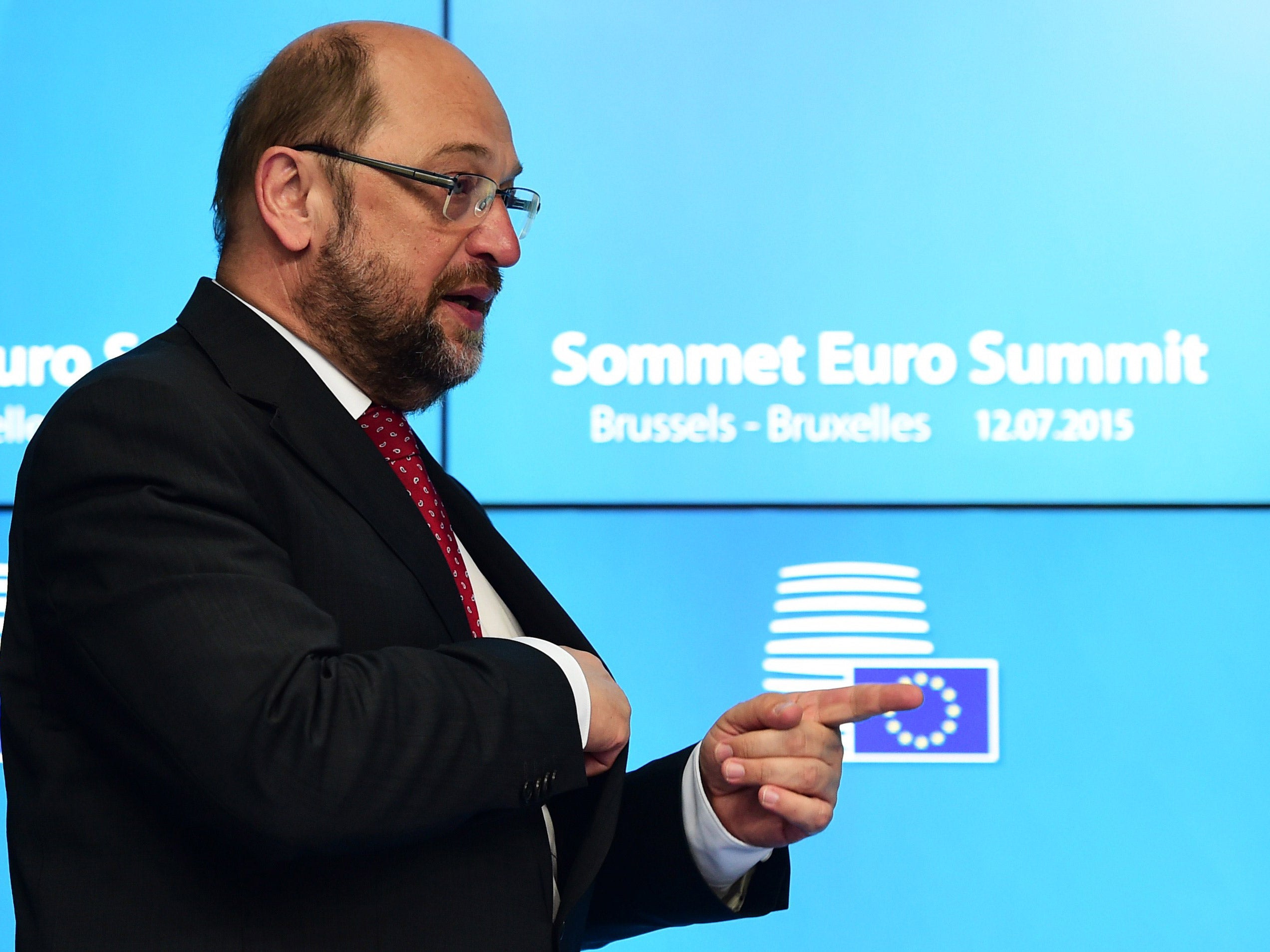David Cameron's EU deal can't be legally binding, EU Parliament president Martin Schulz says
Martin Schulz says the European Parliament might not even rubber-stamp the deal after the election

David Cameron’s package of EU reforms cannot be made legally binding before the British public vote on it, the president of the European Parliament has said.
Martin Schulz said the European Parliament could amend any deal done at today’s summit and would not necessarily even rubber-stamp it at all.
“No government can go to a parliament and ask for a guarantee about the result,” the German politician said.
“This is a democracy. Once the frame is agreed, we will start the legislative process. This is not a veto.”
The president’s statement means that Britain may not get the deal agreed by Mr Cameron if it ultimately votes to stay in the EU.
Mr Schulz, from the parliament’s centre-left Socialist grouping, however pledged that MEPs would be “constructive”, “fair”, and bring clarity to the deal.
The warning is a blow for Mr Cameron, who had explicitly earlier this month that the EU deal would be legally binding.
“If it is agreed, it will be agreed as a legally binding treaty deposited at the United Nations,” he said on 6 February.
“It would only be reversible if all 28 countries, including Britain, agreed to reverse it.”

The agreement Mr Cameron refers to however appears to include the welfare deal being passed by the European Parliament – which would come after the EU referendum.
The president also warned that the European Parliament would demand that there was no treaty change as a result of the deal.
The plebiscite is currently expected in June, though officially it will be held any time before the end of 2017.
British eurosceptic campaigners seized on Mr Schulz’s comments.
“The President of the European Parliament is simply confirming what Leave.EU has said all along: David Cameron's deal is not binding without a new treaty that the European Court in Strasbourg has to adhere to,” Liz Bilney, chief executive of Leave.EU said.
The PM today faces crunch talks in Brussels where he will have to get the 28 EU heads of government to agree to the draft package, which was drawn up by European Council president Donald Tusk.
Mr Cameron faces several hurdles – including significant opposition from eastern European countries like Poland whose citizens could lose out under the plan.
Other, smaller, countries – like Malta and Luxembourg – have said they will not tolerate a deal applied unevenly across other countries, adding a further constraint to negotiations.
Supportive countries like Ireland, France, and Germany are expected to try and broker a deal between Britain and those critical of the plan.
Despite the hoops Mr Cameron has to jump through to secure the changes, they have so far impressed few in the UK. Eurosceptic MPs in Mr Cameron’s own party described the plans as “thin gruel” and “watered down”, while polls show the public believe the deal is overwhelmingly “bad for Britain”.
The latest ComRes poll for ITV News showed a narrowing of the referendum race – with the lead for the “remain” camp down from 18 points in January to just eight this week.
Join our commenting forum
Join thought-provoking conversations, follow other Independent readers and see their replies
Comments